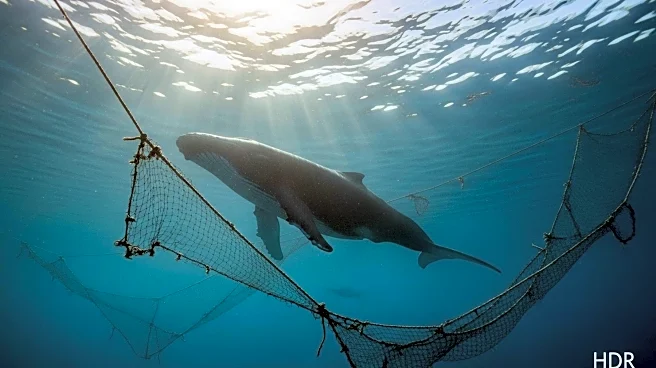What's Happening?
Queensland Premier David Crisafulli has reaffirmed the state's commitment to expanding shark netting, despite recent incidents of whale entanglements. A mother and baby humpback whale were trapped in shark nets near Rainbow Beach, marking the eighth and ninth entanglements in nine days. Crisafulli emphasized the importance of human safety over environmental concerns, stating that the government will not compromise human lives for whale protection. The state uses shark nets and drum lines to protect swimmers, a practice criticized by environmental groups for its impact on marine life.
Why It's Important?
The decision to expand shark netting in Queensland highlights the ongoing debate between human safety and environmental conservation. While shark nets aim to protect swimmers, they pose significant risks to marine life, including whales, turtles, and dolphins. This issue raises ethical questions about the balance between protecting human lives and preserving biodiversity. The controversy may influence public opinion and policy decisions regarding marine conservation and safety measures.
What's Next?
The Queensland government plans to continue its shark net program, potentially facing increased scrutiny from environmental groups and the public. Further whale entanglements could prompt calls for alternative safety measures, such as removing nets during migration seasons. Stakeholders may engage in discussions to find solutions that address both human safety and environmental protection, considering successful practices from other regions.
Beyond the Headlines
The use of shark nets in Queensland reflects broader challenges in marine conservation, where human activities impact wildlife. The situation underscores the need for innovative approaches to reconcile safety and environmental stewardship. It also highlights the importance of public awareness and advocacy in shaping policies that protect both human and marine life.









